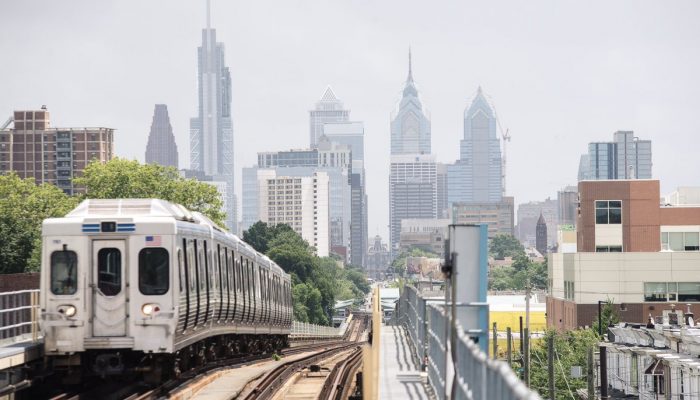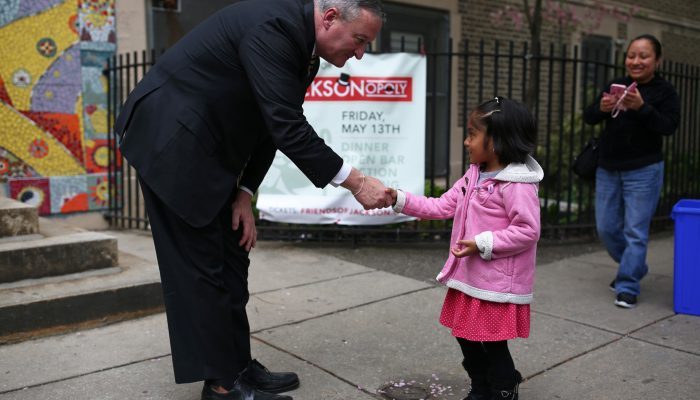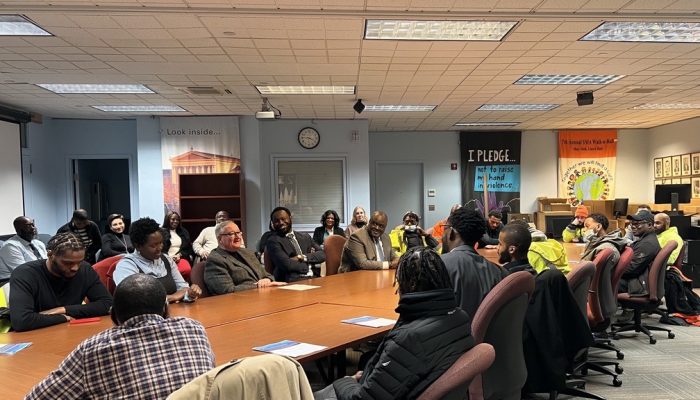Philadelphia’s 26% poverty rate has been decades in the making. It spans generations and reflects historic and systemic issues in our society. There is no single solution to reducing poverty; it’s a complex problem that demands a thoughtful, holistic solution.
Mayor Kenney and his Administration are implementing a multi-pronged approach to lift residents out of poverty and break the poverty cycle for future generations.
Here’s how we’re doing it.
Education: The single most important way we can fight poverty.
Our top priority to ensure future prosperity for all Philadelphians—and our biggest area of investment—is to build a well-funded, quality public school system.
In 2018, Mayor Kenney took back local control of the School District of Philadelphia by calling for an end to the state-run School Reform Commission and appointing a local Board of Education. As a result, the City now has control of, and accountability for, the success of our schools.
At the same time, we have significantly increased the City’s local investment in the School District to keep the progress and momentum going. City taxes make up more than half of the School District’s total operating budget, and on top of that, we have committed an additional $1.2 billion in local funding over five years.
Two Philadelphia Beverage Tax–funded programs will improve educational outcomes and help grow our economy over the long term. Community Schools help students and families address the effects of poverty, and PHLpreK, the City’s first locally funded quality pre-K initiative, will help close the achievement gap for over 5,000 students annually.
Inclusive growth: Supporting the economy while reducing racial inequity.
Released in May 2019, the strategic effort we call “inclusive growth” ensures all residents benefit from our city’s growth—including communities that have been left behind in the past. The Administration’s vision for inclusive growth is based on three key goals:
- Grow the economy to create family-sustaining jobs for all Philadelphians.
- Prepare Philadelphians for jobs that pay family-sustaining wages.
- Encourage equitable growth in neighborhoods without displacement.
Find out more in the report Growing with Equity: Philadelphia’s Vision for Inclusive Growth.
Affordable housing: Preventing poverty through stable and safe housing.
Driven by the need to keep people in their homes and reduce displacement in changing neighborhoods, Mayor Kenney announced the Housing Action Plan in 2018. Since then, we’ve made an unprecedented investment of $80 million in the Housing Trust Fund for affordable housing.
Our Eviction Prevention Task Force invests $500,000 in legal counsel to keep people in their homes and has already led to a 20% reduction in evictions since it was implemented in 2018.
To keep low- and middle-income residents in their homes, we’ve made more homeowners eligible for the Basic Systems Repair Program, and we just launched the Restore, Repair, Renew loan program to provide low-interest loans for home repairs.
Benefits access: Connecting residents to a lifeline when they need it.
Since 2016, our BenePhilly Centers helped more than 20,000 neighbors apply for public benefits, securing almost $20 million in previously unclaimed public assistance. Financial Empowerment Centers provide financial counseling to low-income individuals.
Adult education and workforce development: Building pathways to family-sustaining careers.
To truly move out and stay out of poverty, adults need access to not just a job, but rather a family-sustaining career.
As part of our workforce development strategy, we’re investing in training and education, such as apprenticeships, and tapping in to existing resources at partner organizations. And since 2017, the City as Model Employer program has help place hundreds of individuals into permanent employment within City government or with partner employers.
Job growth: More people to fill more jobs.
Philadelphia has been steadily increasing the number of jobs in our city for nearly a decade. In more recent years, we have even outpaced the national job growth rate.
By investing in neighborhood commercial corridors, expanding access to capital for small businesses, and attracting new companies, we are growing jobs for Philadelphia residents and our tax base.
CONNECT transportation plan: Opportunity through transportation access.
For our city to thrive, growth must benefit all of our residents—especially those who have been historically underserved and who live in neighborhoods that have been disconnected from jobs and opportunities. The CONNECT transportation plan will help ensure that low-income Philadelphians have efficient and affordable access to job centers.
Criminal justice: Reforming an unequal system that punishes the disadvantaged.
We’ve been working to dismantle the racial and ethnic inequities within the criminal justice system with the support of a multi-year MacArthur Foundation grant. Along with our partners, we’ve reduced the prison population by 42% and expanded support for returning citizens.
Roadmap to Safer Communities: Reducing poverty-created violence.
We cannot address poverty without simultaneously addressing violence that’s created, in large part, by lack of opportunity. Earlier this year, we released the Roadmap to Safer Communities, our comprehensive plan to reduce shootings and homicides, and we are investing an additional $30 million over the next five years implement it.
Raise the wage: Advocating for living wages.
Increasing the minimum wage is a proven way to reduce poverty. That’s why Mayor Kenney recently passed legislation to increase the minimum wage of City employees and contractors to $15 per hour by 2022.
Pennsylvania’s minimum wage has been unchanged for the past 10 years, and our $7.25 minimum wage is the lowest among all neighboring states. If Pennsylvania raises the minimum wage to $15 per hour, over 77,000 Philadelphia residents would benefit immediately from this increase.
Governor Wolf has proposed a plan for a minimum wage increase in Pennsylvania. Our Administration supports this plan and urges our legislators to work with the governor to make it a reality.




